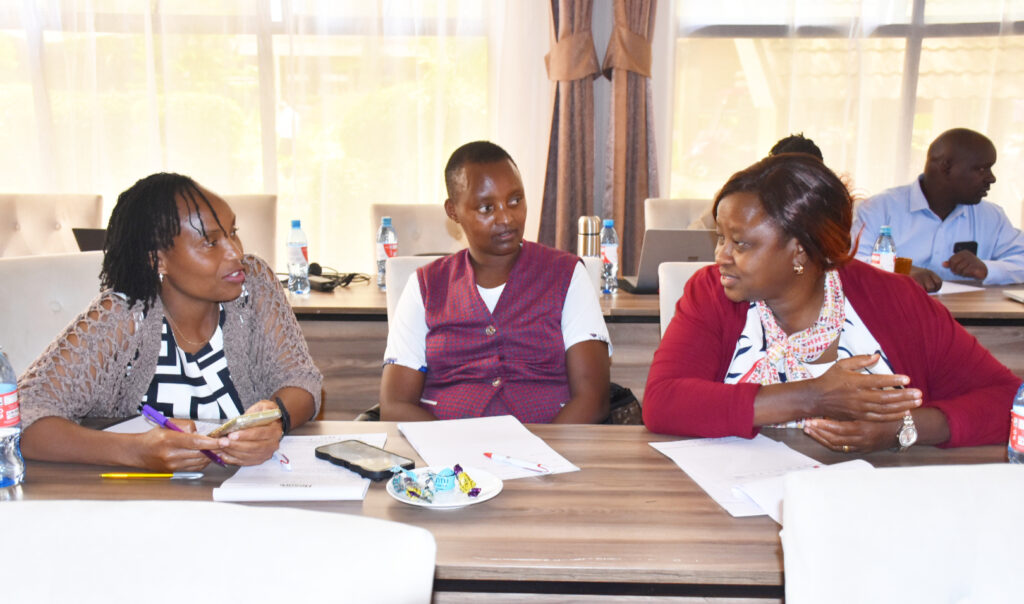
CONCEPT NOTE
INTERNATIONAL TRAINING ON GENDER EQUALITY, DIVERSITY, AND SOCIAL INCLUSION
BACKGROUND
In today’s interconnected world, fostering Gender Equality, Diversity, and Social Inclusion (GEDSI) is essential for achieving sustainable development and social equity. Recognizing the pivotal role that inclusive practices play in environmental and sustainability initiatives, the Environmental Capacities and Sustainability (ECAS) Institute has developed a comprehensive GEDSI course. This program is designed to equip participants with the knowledge and skills necessary to integrate GEDSI principles into their professional and community endeavors.
The course delves into the systemic barriers that perpetuate inequality and exclusion, offering analytical frameworks to understand and address these challenges. Participants will explore strategies to promote inclusivity within various contexts, emphasizing the importance of cultural competence and policy advocacy. Through a blend of theoretical insights and practical applications, the program aims to empower individuals to become effective advocates for gender equality and social inclusion.
By engaging with real-world case studies and interactive discussions, attendees will gain a nuanced understanding of how to implement GEDSI initiatives that drive positive change. The ECAS Institute is committed to advancing equitable and inclusive practices, aligning with global efforts to create just and sustainable societies.
OBJECTIVES OF THE TRAINING
The key objectives are:
- To gain a comprehensive understanding of gender equality, diversity, and social inclusion principles.
- To identify and assess the systemic barriers that hinder inclusivity in various sectors.
- To formulate strategies to integrate GEDSI principles into environmental and sustainability projects.
- To improve the ability to work effectively in diverse cultural settings.
- To advocate for policies that support gender equality and social inclusion at organizational and community levels.
- To apply best practices for fostering inclusive environments within organizations.
- To assess the impact of GEDSI initiatives and identify areas for improvement.
WHAT YOU WILL LEARN
By the end of this comprehensive course participants will have a clear understanding of:
- Importance of gender equality, diversity, and social inclusion.
- Techniques to identify and analyze systemic barriers to inclusivity in environmental and sustainability contexts.
- Methods to incorporate GEDSI principles into project planning and implementation.
- Skills to navigate and respect diverse cultural perspectives in professional settings.
- Knowledge of how to develop and advocate for policies that promote inclusivity.
- Exposure to case studies and best practices for creating inclusive organizational cultures.
- Tools to evaluate the effectiveness of GEDSI initiatives and frameworks for continuous improvement.
DURATION AND PROGRAM
TARGET PARTICIPANTS
This course is ideal for environmental professionals, sustainability practitioners, policy makers, organizational leaders, and community advocates who are committed to advancing gender equality and social inclusion within their work. It is also beneficial for educators, researchers, and students interested in integrating GEDSI principles into environmental and sustainability disciplines.
TRAINING MODULES
| No | Module | Details | |
| 1. | Introduction to GEDSI |
|
|
| 2. | Unconscious Bias and Stereotypes |
|
|
| 3. | Creating Inclusive Environments |
|
|
| 4. | Systemic Barriers to GEDSI |
|
|
|
5.
|
Legal and Policy Frameworks |
|
|
| 6. | Intersectionality |
|
|
| 7. | Inclusive Leadership and Communication |
|
|
| 8. | Case Studies and Best Practices |
|
|
TRAINING STYLE
The course employs a blend of interactive lectures, case studies, group discussions, role-playing exercises, and self-assessment tools to ensure a comprehensive and engaging learning experience. Participants will have opportunities to engage with real-world scenarios, fostering practical application of GEDSI principles.
GENERAL NOTES
- Training manuals and additional reference materials are provided to the participants.
- Upon successful completion of this course, participants will be issued with a certificate.
- We can also do this as a tailor-made course to meet organization-wide needs. Contact us to find out more: info@ecasiafrica.org.
- Payment should be sent to our bank account before the start of training and proof of payment sent to: info@ecasiafrica.org.
ABOUT ECAS INSTITUTE
The ECAS Institute designs and delivers independent and targeted training, research, and consulting services. Our work focusses on climate change and resilience building, carbon markets, renewable energy, nature-based solution, biodiversity conservation, agriculture and food systems, We are located in Nairobi Kenya and work across the African region. We have implemented training and research assignments in Kenya, Tanzania, Uganda, South Sudan, Somalia, Malawi, Rwanda, Congo, and South Africa. Globally, we have supported our partners from the UK, Denmark, Italy, Sweden, Germany, and USA.

